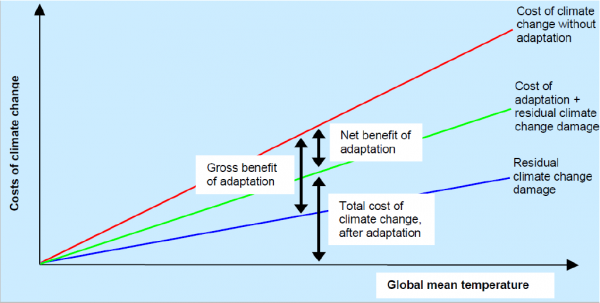Objective
COIN acknowledges the urgent need of policy makers to get informed about the costs of climate change in Austria.Taking into account that this information is basically needed to allow for knowledge-based decisions on adaptation measures across a range of different ‘fields of activity’ (cf. Austrian national adaption strategy, NAS), the COIN project applies a disaggregated bottom-up approach to come up with realistic cost ranges for
- Agriculture
- Forestry
- Ecosystems and biodiversity
- Health
- Water Supply and Sanitation
- Energy
- Buildings:Heating and Cooling
- Transport and mobility
- Industry and retail
- Manufacturing and trade services
- Cities and urban green
- Catastrophe management
- Natural disaster protection and spatial planning, as well as
- Tourism
The fields of activity represent economic, social and environmentally relevant areas and are classified according to the Austrian NAS. Costs of inaction are regarded as costs of climate change in Austria without planned/anticipated action on adaptation and without any further action on mitigation (after OECD: only action that has already been ratified, not action that is envisaged) Figure 1 illustrates in a simplified schematic setting the cost categories relevant for the adaptation process. The COIN approach refers solely to the red curve.
 Figure 1: Schematic illustration of Cost ranges of costs due to climate change; schematic and simplified illustration. Costs of inaction are defined as impacts for private and public budgets if no action is taken with respect to (planned/proactive) adaptation (red line). (source: Stern, 2007: The economics of climate change)
Figure 1: Schematic illustration of Cost ranges of costs due to climate change; schematic and simplified illustration. Costs of inaction are defined as impacts for private and public budgets if no action is taken with respect to (planned/proactive) adaptation (red line). (source: Stern, 2007: The economics of climate change)
In that way, COIN results are the first milestone on the way towards a ‘cost-benefit analysis’ of adaptation (i.e. the implementation of the Austrian NAS via adaptation at different policy scales – from national to local) by delivering the information on the potential benefits (i.e. the damage avoidance potential) that adaptation would have in Austria. By bringing together experts from various leading institutions and disciplines and exchanging on the project proceedings with an international advisory board, COIN furthermore fosters inter- and transdisciplinary research in Austria and strengthens the liaison with the international research community on costs of climate change.
